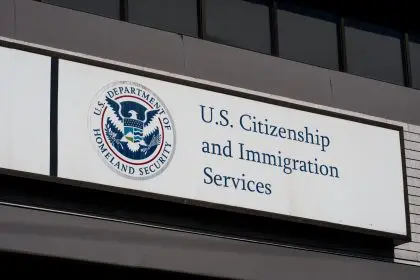The healthcare world just got a major shock as UnitedHealth Group, the massive insurance and healthcare services behemoth, finds itself abruptly without a captain. CEO Andrew Witty’s unexpected resignation has sent ripples through the industry and left investors clutching their pearls as the company simultaneously pulled its financial guidance for next year. Talk about jumping ship during rough waters.
The leadership earthquake
In a move that has industry insiders raising eyebrows, UnitedHealth announced CEO Andrew Witty’s departure with the corporate equivalent of “it’s not you, it’s me.” The vague explanation citing “personal reasons” has done little to calm nerves as the healthcare giant’s stock took an immediate hit.
The timing couldn’t be more suspicious. Witty’s exit comes precisely when the company is battling financial headwinds from an unexpected surge in medical claims. Rather than weathering the storm, the captain appears to have grabbed a lifeboat, leaving investors and employees alike wondering what he might know that they don’t.
In response, the company’s board has summoned former CEO Stephen Hemsley from his board chairman role to retake the helm temporarily. It’s like calling your ex during an emergency—a move that might provide immediate comfort but raises obvious questions about whether there was a better plan available.
The Medicare money pit
Behind the leadership drama lies a more fundamental challenge—UnitedHealth’s Medicare Advantage business is experiencing a serious case of financial indigestion. The program, which offers privately managed Medicare plans to seniors, has been a major growth engine for the company. Unfortunately, it’s now burning fuel faster than expected.
The problem is refreshingly simple yet financially devastating. More seniors than projected are actually using their health insurance to get healthcare. Revolutionary concept, right? After years of carefully calibrated projections about how often members would seek medical care, UnitedHealth is discovering that its math might have been overly optimistic.
This utilization spike has forced the company to withdraw its 2025 financial guidance entirely—corporate speak for “we have no idea how much money we’re going to make next year.” For a company that prides itself on predictability and steady growth, this uncertainty represents a significant credibility hit.
The pandemic aftershocks
Part of UnitedHealth’s current predicament stems from the unpredictable aftermath of the pandemic. Healthcare utilization patterns went haywire during COVID—first plummeting as people avoided medical settings, then rebounding as delayed care finally caught up.
The company’s actuaries, those masters of healthcare fortune-telling, appear to have misread the tea leaves. They predicted a gradual return to normal patterns, but instead, they’re seeing sustained higher usage, particularly among Medicare members who may have postponed significant care during the pandemic years.
This miscalculation isn’t just a minor accounting hiccup. For health insurers, accurately predicting medical costs is the entire ballgame. When those predictions miss by enough percentage points, profit margins can quickly evaporate, turning what looked like a lucrative line of business into a financial albatross.
The Wall Street worry
Investors, never known for their patience with uncertainty, reacted predictably to the one-two punch of leadership change and financial guidance withdrawal. UnitedHealth’s stock took a serious hit, erasing billions in market value faster than you can say “unexpected CEO resignation.”
The market reaction reflects a deeper anxiety. UnitedHealth has long positioned itself as the steady, reliable giant in the healthcare space—the blue-chip investment that delivers consistent returns while navigating the industry’s notorious complexity. That carefully cultivated image has suffered a significant blow.
Analysts are now raising uncomfortable questions about the company’s ability to price its Medicare Advantage products appropriately, manage medical costs effectively, and maintain its market-leading position as competitors circle. The leadership vacuum only amplifies these concerns, creating an impression of a company suddenly playing defense rather than confidently expanding its empire.
The accidental interim
Stephen Hemsley, the company’s chairman and former CEO, now finds himself back in the executive suite in what was surely not part of his retirement plan. Having led UnitedHealth through years of expansion from 2006 to 2017, he’s being asked to steady the ship during this moment of turbulence.
Hemsley’s return might reassure some stakeholders who remember his tenure as a period of significant growth and strategic clarity. However, it also raises uncomfortable questions about succession planning. Why wasn’t there a clear internal candidate ready to step up? Has the company’s leadership bench been thinner than it appeared?
The interim arrangement buys time but creates its own uncertainty. How aggressively can a temporary leader make strategic changes to address the underlying financial challenges? Will Hemsley be merely a caretaker, or will he initiate more fundamental reforms during his unexpected encore performance?
The tragic backdrop
Adding another layer of complexity to this corporate drama is a genuine tragedy. The recent fatal shooting of UnitedHealthcare CEO Brian Thompson has cast a shadow over the organization, creating emotional strain throughout its leadership ranks.
While not directly connected to Witty’s departure, this shocking event has undoubtedly contributed to a sense of instability within the company. Organizations, like people, can find it difficult to process multiple significant disruptions simultaneously, and UnitedHealth is navigating both operational challenges and personal loss.
The human dimension of this leadership change can’t be overlooked. Beyond spreadsheets and stock prices, UnitedHealth is an organization of people who have experienced trauma and upheaval. How the company supports its workforce through this period may prove as important as its financial maneuvers.
The industry implications
UnitedHealth’s challenges haven’t emerged in isolation. Across the health insurance landscape, companies are grappling with similar utilization pressures, particularly in Medicare Advantage programs where competition for seniors is fierce and pricing mistakes can be costly.
The company’s stumble may signal broader industry recalibration. After years of robust growth and profitability in Medicare Advantage, insurers may need to reset expectations about sustainable margins in this market segment. This could trigger ripple effects from premium increases to benefit design changes for millions of seniors.
UnitedHealth’s sheer size—it covers more Americans than any other private insurer—means its strategies often set industry benchmarks. If the company pulls back from aggressive Medicare Advantage growth or significantly restructures its offerings, competitors may follow suit, reshaping this vital market for older Americans.
The regulatory radar
UnitedHealth’s current predicament arrives against a backdrop of increased regulatory scrutiny. Government officials have been examining Medicare Advantage plans with growing concern about everything from marketing practices to risk adjustment payments.
The company’s admission that it misjudged utilization patterns could attract unwanted attention. Regulators might question whether its Medicare Advantage pricing strategies were sustainable or whether it was offering benefits that looked attractive on paper but assumed unrealistically low utilization.
This regulatory dimension adds another layer of complexity to the leadership transition. Any new permanent CEO will need to navigate not just operational challenges but potential policy changes that could fundamentally alter the Medicare Advantage landscape.
The path forward
Despite these challenges, UnitedHealth remains an unmatched force in American healthcare. Its combination of insurance coverage, physician practices, surgery centers, data analytics, and pharmacy benefits gives it unparalleled scale and integration.
The company’s immediate priority will be restoring market confidence through transparency about its Medicare Advantage challenges and a credible plan to address them. This might include more conservative pricing for 2026 plans, benefit adjustments, or enhanced medical management programs.
Simultaneously, the board must conduct a thorough CEO search that balances the need for fresh perspective with deep industry knowledge. The next leader will inherit both significant challenges and remarkable assets—including a company that touches nearly every aspect of the healthcare ecosystem.
The leadership lesson
UnitedHealth’s current turbulence offers a reminder that even the mightiest healthcare organizations remain vulnerable to fundamental industry challenges: accurately predicting healthcare utilization, managing costs effectively, and balancing growth with sustainability.
For stakeholders across healthcare, this situation demonstrates how quickly confidence can erode when leadership continuity and financial predictability are simultaneously disrupted. Organizations that pride themselves on stability need succession plans as robust as their balance sheets.
As the dust settles, UnitedHealth faces a critical inflection point. Its response to this leadership transition and financial reset will determine whether this period represents a temporary setback or the beginning of a more challenging chapter for one of healthcare’s most influential companies.

















